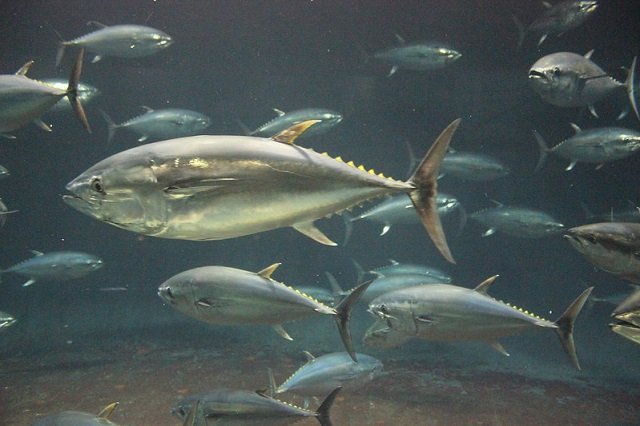Australia.- Environmental organisation WWF and its partners have introduced revolutionary blockchain technology to the Pacific Islands’ tuna industry, the first of its kind for this region, to help stamp out illegal fishing and human rights abuses.
Tracking fish from vessel to the supermarket, the Blockchain Supply Chain Traceability Project is using digital technology in the fresh and frozen tuna sectors of the Western and Central Pacific region to strengthen supply chain management.
As part of an innovative initiative, WWF-New Zealand, WWF-Australia, and WWF-Fiji have teamed up with global tech innovator ConsenSys, information and communications technology (ICT) implementer TraSeable, and tuna fishing and processing company Sea Quest Fiji Ltd. to deliver the project in Fiji.
“We are so excited that WWF-New Zealand is a Blockchain project partner,” said WWF-New Zealand CEO Livia Esterhazy. “This innovative project has the potential to really improve people’s lives and protect the environment though smart, sustainable fisheries.”
“For years, there have been disturbing reports that consumers may have unknowingly bought tuna from illegal, unreported and unregulated fishing and, even worse, from operators who use slave labour.
“Through blockchain technology, soon a simple scan of tuna packaging using a smartphone app will tell the story of a tuna fish – where and when the fish was caught, by which vessel and fishing method. Consumers will have certainty that they’re buying legally-caught, sustainable tuna with no slave labour or oppressive conditions involved. Blockchain technology is a digital, tamper-proof record of information that is accessible to everyone.”
The buying and selling of Pacific tuna is currently either tracked by paper records, or not at all. Now fishermen can register their catch on the blockchain through radio-frequency identification (RFID) e-tagging and scanning fish.
“This is about helping people understand exactly where their food comes from – telling the story about the fish, the fisherman, the families, the crew – the path from ocean to plate,” Ms Esterhazy said.
Stay Always Informed
Join our communities to instantly receive the most important news, reports, and analysis from the aquaculture industry.
Now steps are underway to find a retailer to partner in the project and use blockchain to complete the tuna’s traceability story.
ConsenSys, one of the leaders in blockchain development, is working with WWF and Sea Quest to test and implement the Viant blockchain traceability tool for the Pacific tuna industry.
“We are thrilled to be working with WWF and Sea Quest Fiji on this project, as ConsenSys has a keen interest in supporting applications of blockchain that offer an opportunity for social impact and doing good in the world,” said Tyler Mulvihill, Co-Founder and Global Business Development, Viant.io.
Brett “Blu” Haywood, the CEO of Sea Quest Fiji, welcomes the blockchain technology. “Sustainable fishing ensures the longevity of the fishing business, and Sea Quest wants to see sustainable fishing in the region. This blockchain project with the three WWF offices certainly gives the industry the best opportunity going forward,” Mr Haywood said.
The project receives technical support from TraSeable Solutions, a new technology company based in Fiji. CEO of TraSeable Ken Katafono said: “I am very excited to be part of this project, which I’m sure will lead the transformation of seafood supply chain traceability in the Pacific and potentially around the world”.
Source: WWF
Editor at the digital magazine AquaHoy. He holds a degree in Aquaculture Biology from the National University of Santa (UNS) and a Master’s degree in Science and Innovation Management from the Polytechnic University of Valencia, with postgraduate diplomas in Business Innovation and Innovation Management. He possesses extensive experience in the aquaculture and fisheries sector, having led the Fisheries Innovation Unit of the National Program for Innovation in Fisheries and Aquaculture (PNIPA). He has served as a senior consultant in technology watch, an innovation project formulator and advisor, and a lecturer at UNS. He is a member of the Peruvian College of Biologists and was recognized by the World Aquaculture Society (WAS) in 2016 for his contribution to aquaculture.




